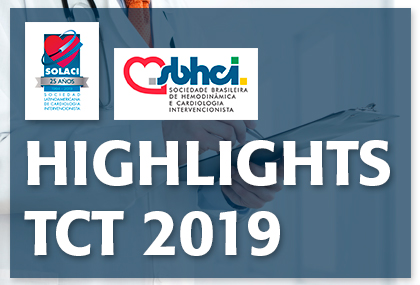Courtesy of the SBHCI.
This is the first randomized study comparing a durable-polymer drug-eluting stent (zotarolimus-eluting stent Onyx) and a polymer-free drug-eluting stent (biolimus-A9-coated stent BioFreedom), with only one month of dual antiplatelet therapy in patients at high risk for bleeding.

Onyx ONE was a study conducted at 84 sites that randomized 1:1 2000 total patients at high risk for bleeding. The endpoints were cardiovascular death, acute myocardial infarction, and definite or probable stent thrombosis after a 1-year follow-up.
The secondary endpoints included target-lesion restenosis, bleeding according to the BARC classification, and the separate components of the primary endpoint.
The primary endpoint of cardiovascular death, infarction, and stent thrombosis combined at one year was 17.1% for Onyx and 16.9% for BioFreedom (p for noninferiority 0.01). The secondary endpoints and the rate for bleeding were similar for both devices.
Conclusion
Around 40% of patients who undergo angioplasty are at high risk for bleeding, and consensuses recommend 3 to 6 months of dual antiplatelet therapy for most of them, and only 1 month in very select cases. This work further supports one month of dual antiplatelet therapy and adds another device to the list (this time, one with durable polymer), a device that seems to be safe with such a short duration for dual antiplatelet therapy.
Courtesy of SBHCI.
Link to the SBHCI publication SBHCI HERE
Original Title: Onyx ONE: A Randomized Trial of a Durable-Polymer Drug-Eluting Stent vs. a Polymer-Free Drug-Coated Stent in Patients at High Risk of Bleeding Treated With 1-Month DAPT.
Author of the Original Article: Stephan Windecker.
Get the latest scientific articles on interventional cardiologySubscribe to our weekly newsletter
We are interested in your opinion. Please, leave your comments, thoughts, questions, etc., below. They will be most welcome.





